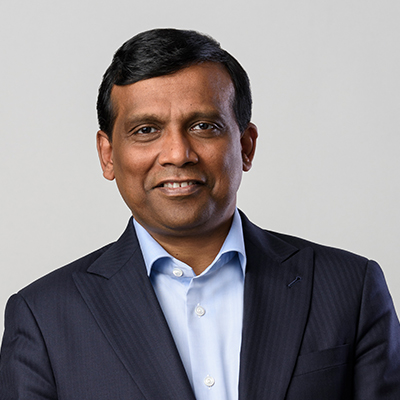
Ravi Kumar S
CEO
Cognizant
Ravi Kumar S was appointed Chief Executive Officer of Cognizant in January 2023. In his role as CEO, Ravi sets the strategic direction of the company, promotes Cognizant’s client-first culture, and focuses on ensuring sustainable growth and driving long-term shareholder value.
He is a highly accomplished services industry executive with experience across digital transformation, traditional technology and engineering services, data and analytics, cloud and infrastructure, and consulting.
Prior to Cognizant, Ravi served as President of Infosys from 2016 to 2022, where he led the global services organization across all industry segments and served as Chairman of the Board of Infosys BPM Ltd. Previously, he was the Group Head for the Insurance, Healthcare, and Cards and Payments unit, and led the Global Delivery organization where he built the Oracle and CRM practices.
Before joining Infosys, Ravi served in positions of increasing responsibility at PricewaterhouseCoopers, Cambridge Technology Partners, Oracle and Sapient (now Publicis Sapient). The early part of his career was spent as a nuclear scientist at the Bhabha Atomic Research Center of India.
Ravi holds various prominent positions on multiple boards. He serves as a board member of TransUnion, the U.S. Chamber of Commerce and the International Tennis Hall of Fame, and is a member of the Board of Governors of the New York Academy of Sciences. Additionally, he served on the Board of Directors for Digimarc Corporation from June 2021 to May 2023.
He holds a bachelor’s degree in engineering from Shivaji University and an M.B.A. from Xavier Institute of Management, India.